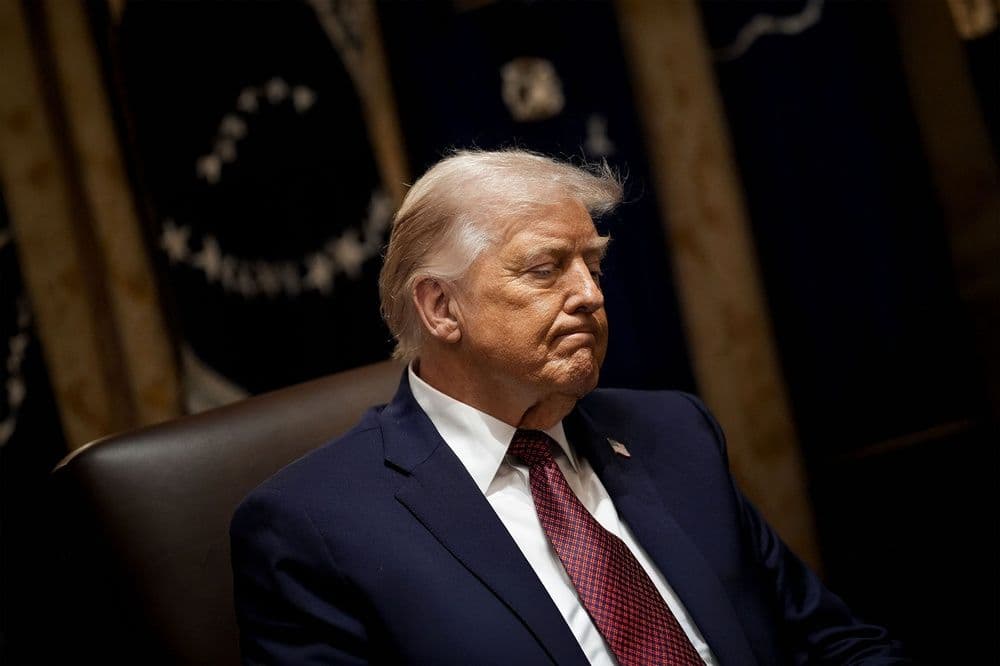 Senator Bill Hagerty (R-Tenn.), who sponsored the GENIUS Act in the Senate, has promoted the bill as a key step toward establishing U.S. leadership in digital finance. (Shutterstock)
Senator Bill Hagerty (R-Tenn.), who sponsored the GENIUS Act in the Senate, has promoted the bill as a key step toward establishing U.S. leadership in digital finance. (Shutterstock)PASSED: The GENIUS Act will create a clear regulatory stablecoin framework for asset innovators to thrive in the U.S., bring our payment system into the 21st century, and preserve the dollar’s dominance as the world’s reserve currency.
— Tom Emmer (@GOPMajorityWhip) July 17, 2025
A massive WIN! pic.twitter.com/f9Wg4l8myx
This afternoon, the House passed the GENIUS Act — soon to be the first-ever crypto law in our nation’s history.
— Senator Bill Hagerty (@SenatorHagerty) July 17, 2025
It will be great for the freedom and prosperity of American citizens, our businesses, and the Greatest Nation in the history of the world.
I look forward to being…
Support for the bill has come from across the digital asset industry. Companies such as Circle and Coinbase have welcomed the legislation as a necessary framework for integrating stablecoins into the broader financial system. Industry leaders also hope the new rules will help cement the U.S. dollar’s dominance in digital finance amid growing competition from foreign-issued tokens and CBDCs.
However, not all reactions have been positive. Several Democratic lawmakers and public interest groups have voiced concerns over potential loopholes and conflicts of interest. Representative Maxine Waters warned that the bill may serve private interests too readily, citing Trump’s personal holdings in crypto ventures, including a stake in World Liberty Financial, a company tied to the USD1 token. Critics also argue that the dual-licensing system could favor large incumbents while limiting opportunities for smaller, decentralized projects.
With the House vote complete, attention now turns to President Trump’s desk. If signed into law as expected, the GENIUS Act will initiate a months-long implementation phase. Agencies including the Federal Reserve, OCC, and FDIC will be responsible for drafting detailed compliance rules, onboarding issuers, and monitoring risk. The bill outlines a transition period during which existing stablecoin projects must register or adjust operations to meet the new requirements.
Stablecoins, which are cryptocurrencies pegged to the U.S. dollar or other fiat currencies, have become a cornerstone of the digital asset ecosystem. With over $220 billion in circulation and accounting for the majority of crypto trading volume, stablecoins have drawn increasing attention from policymakers seeking to establish clear rules. The GENIUS Act aims to bring long-awaited legal certainty to this sector by establishing a comprehensive regulatory framework that balances innovation with financial stability and consumer protection.
Among the bill’s key provisions is a requirement that all stablecoins be fully backed by U.S. dollars or high-quality liquid assets such as Treasury bills. Issuers will be required to submit to regular audits to confirm their reserves and maintain monthly transparency reports outlining reserve composition and amounts. The legislation also prohibits algorithmic or yield-generating stablecoins that lack tangible asset backing, in a clear attempt to prevent a repeat of collapses like TerraUSD in 2022.
The GENIUS Act establishes a dual-licensing regime for stablecoin issuers. Large institutions, such as banks, will be regulated at the federal level under the Office of the Comptroller of the Currency (OCC), while smaller state-chartered entities can continue operating under state supervision. However, once a state-regulated issuer exceeds $10 billion in outstanding stablecoins, it must transition to federal oversight. This two-tiered approach seeks to accommodate a range of players in the industry while ensuring that systemic risk is adequately addressed.
Consumer protection is another cornerstone of the bill. In the event of bankruptcy, stablecoin holders will be treated as general creditors, and issuers must comply with anti-money laundering and sanctions regulations. These measures are designed to provide greater security and trust for users and financial institutions alike, especially as stablecoins increasingly interface with traditional payment systems.
.@POTUS promised to make America the crypto capital of the world, and today we delivered. pic.twitter.com/I9B22QogIF
— Tom Emmer (@GOPMajorityWhip) July 17, 2025
The GENIUS Act is one piece of a broader legislative agenda. The House also passed two related bills: the Digital Asset Market CLARITY Act, which seeks to define jurisdictional boundaries between the SEC and CFTC, and the Anti-CBDC Surveillance State Act, aimed at prohibiting the issuance of a central bank digital currency. While the GENIUS Act has already cleared both chambers of Congress, these companion bills now await action in the Senate, where debate is expected to intensify in the coming weeks.
Passage of the GENIUS Act is widely seen as a watershed moment in the evolution of U.S. crypto regulation. It represents a departure from the enforcement-first approach that has dominated federal oversight of digital assets. For the first time, Congress is setting out clear legal guardrails for one of the most important use cases in the crypto space. Lawmakers hope this will encourage responsible innovation, reduce systemic risk, and offer consumers greater protections.
Market reaction was swift and optimistic. Bitcoin surged above $120,000 following the House vote. Treasury Secretary Scott Bessent has suggested that regulated stablecoins could even boost demand for U.S. government debt, serving as a new channel for Treasury issuance and supporting broader economic stability.

White House eyes tariff rise after Supreme Court decision

Global gaming leaders convene in Saudi Arabia

Botim money expands into digital silver in the UAE

Blockchain for Good Alliance moves beyond pilot projects